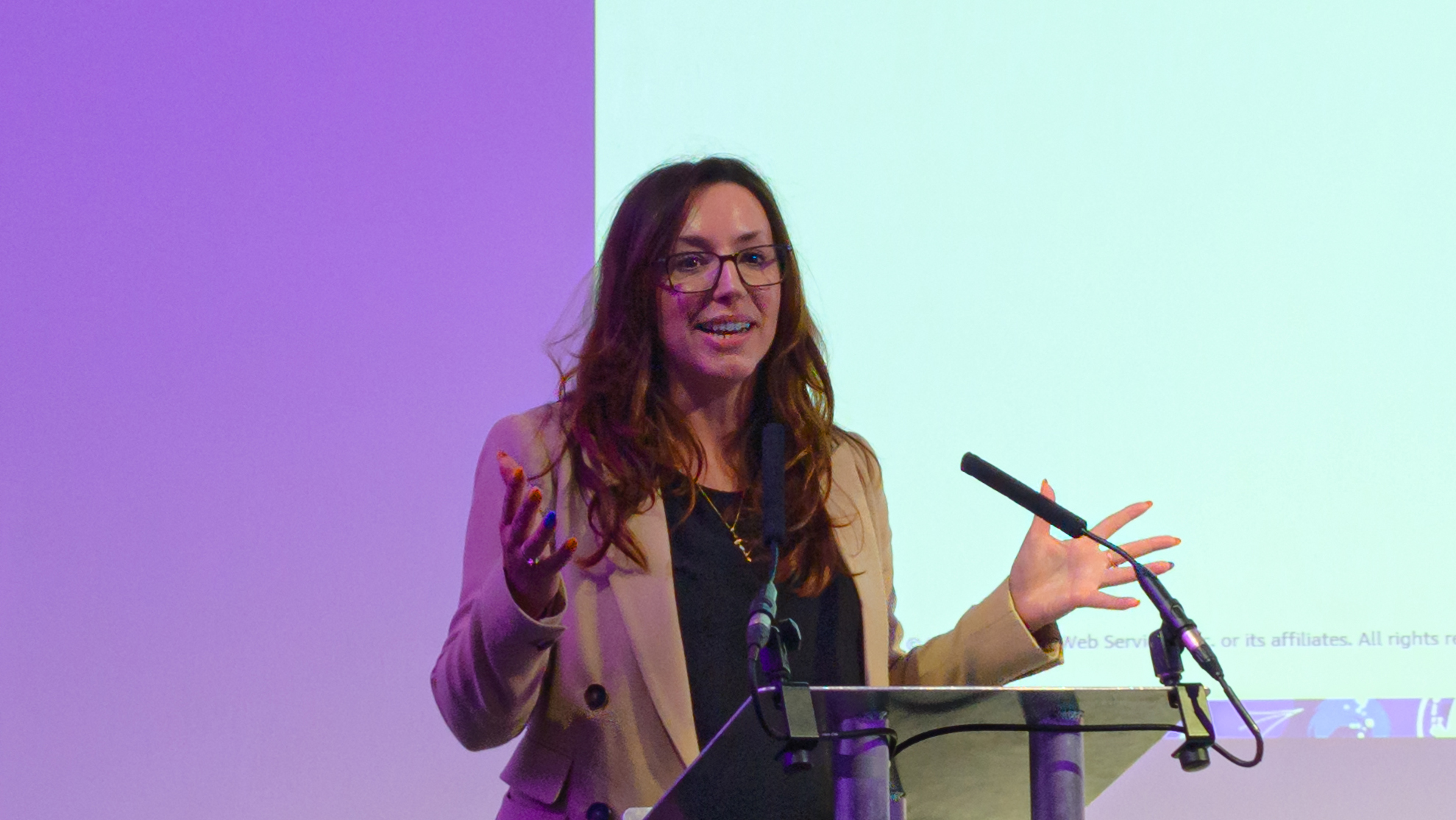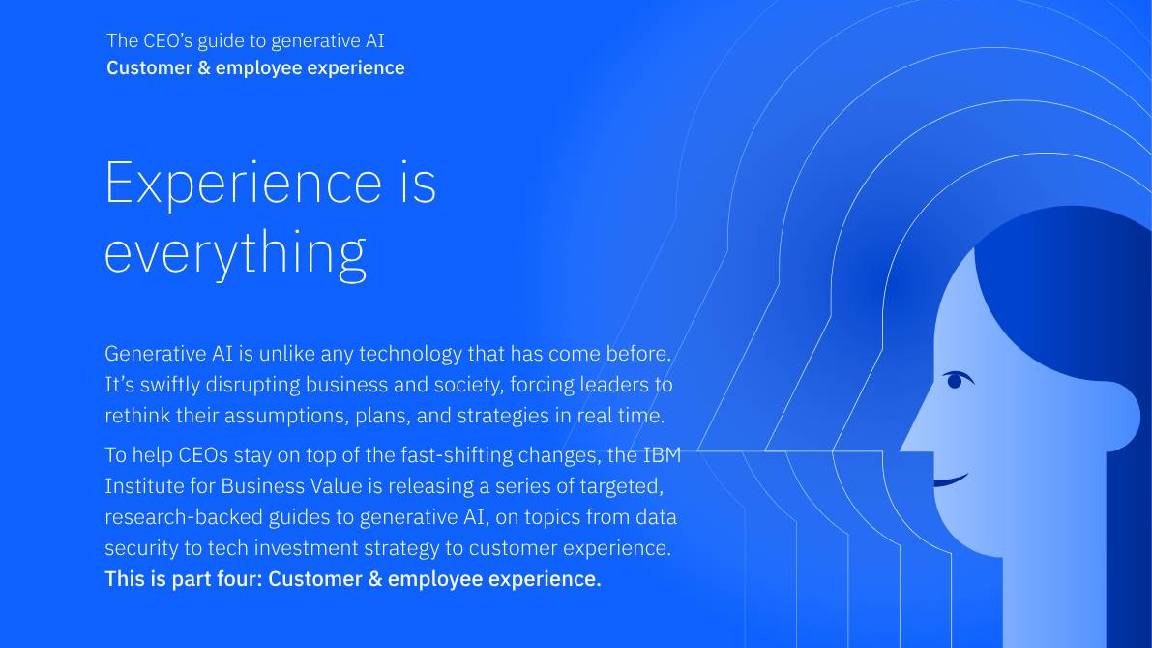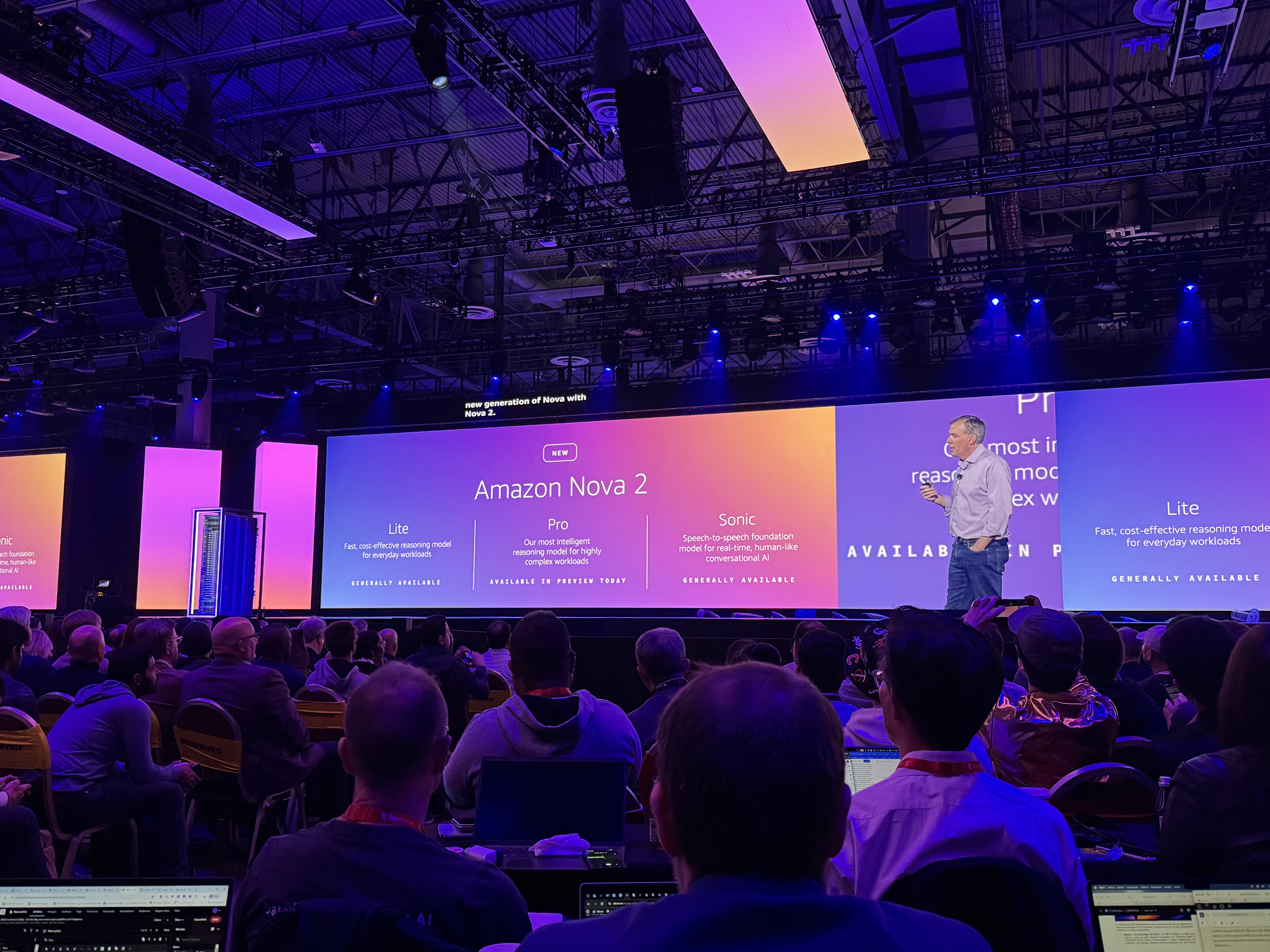The UK has ‘seismic’ AI potential, says AWS startup leader – but startups still need skills support
AI demand outstrips readiness across the business world, but with hyperscaler support startups are starting to show the technology’s potential


AI startups are in a critical position at the moment, with the potential to raise millions from investors buying into the hype around generative AI but also the challenge of standing out in a sea of AI-focused businesses.
This is why startups often tie up with some of the largest companies in tech, either through accelerator schemes or public cloud platforms. AWS is one of the major players in this regard, having spent the past decade building out AI startups through strategic investment.
ITPro spoke to Tricia Troth, general manager at AWS Startup for the UK & Ireland, at a recent event hosted by the firm, to discuss this support in detail.
Troth began by noting in the past year, AWS has seen startups exploring tech like Amazon’s SageMaker and Bedrock platforms for generative AI models, machine learning (ML), and fine-tuning. This wasn’t just the case in sectors such as SaaS customer service, but also in climate tech and regulated industries like fintech.
This is down, in part, to advances that have reduced AI hallucinations and what Troth described as improved “guardrails” included in models on Amazon Bedrock including those it’s developed internally as well as those from companies like Anthropic and Meta.
AI risk is in the target of regulators at present. Troth told ITPro that AWS hasn’t seen a slowdown in customer appetite driven by growing AI regulation, as startups are still eager to experiment with AI. However, she acknowledged the challenge of AI skills shortages that many employers still feel.
“A lot of customers have been telling us for a while ‘it is a big priority for us to build AI capabilities and skills but we're struggling to find people’”.
Sign up today and you will receive a free copy of our Future Focus 2025 report - the leading guidance on AI, cybersecurity and other IT challenges as per 700+ senior executives
AWS ran a study into this issue, which took in responses from 1,600 employees across 500 organizations to find that 51% of employers want workers with AI skills but 71% are struggling to find the right individuals. With this in mind, AWS has committed itself to training two million people in AI skills by 2025.
“One thing I really like about that, and I think this is an important part for lots of us to remember, is that it will be offered to adults and young people,” Troth told ITPro,
“And the thing I really love about that is essentially it is breaking down the costs or the barrier of entry for people to get access to AI skills and capabilities which we hope will go somewhere to addressing where we need to move to in the future.”
Harnessing the UK’s AI potential
AWS believes that the UK will be a key region for AI and Troth was clear that there was huge potential economic benefit to unlocking AI innovation within the UK, if these skills could be unlocked.
“In terms of the size of the impact of the critical mass of opportunity, it is quite seismic,” she said.
“Ultimately, we believe that the AI adoption curve and acceleration is going to add an additional £520 billion to the UK economy by 2030, up from £413 billion previously.”
In September, AWS announced an £8 billion investment in data centers across the UK by 2030, which Troth said was all about reducing latency for UK customers and meeting surging generative AI demand.
Beyond data centers, Troth said the UK could directly act as a hub for AI innovation and skills.
“You’ve got the academic and university affiliations, look at everything that's happening at the moment with Oxford, Cambridge, Imperial for example,” she said. “That is really a hotbed of AI talent and capability that is to be nurtured and effectively to become the next generative AI leaders, not only for the UK but also for the future.”
But alongside long-term investment in skills, AWS is targeting short-to-medium-term returns by catalyzing investment in promising AI startups through its accelerator program.
AWS' startup support
In June, AWS announced $230 million for its AI accelerator program, in addition to the $6 billion it’s spent on credits that startups can use to offset their AWS costs through the AWS Activate program.
The accelerator takes around 80 startups and provides them with professional assistance from AWS data scientists and machine learning specialists, along with ongoing AWS mentorship and networking opportunities with venture capitalists to give advice on funding rounds.
“We put them through a fairly rigorous pre-screening process,” Troth told ITPro, “to effectively look at where are they in terms of their product development, their maturity as a business, the background and specialism of their founders and their technologists to see how can we actually take an idea that they have from inception and really help them to scale that.”
Current participants include the deep tech firm PhysicsX, which uses machine learning to improve high-performance computing physics simulations across sectors including renewables and automotive.
RELATED WHITEPAPER

Another AWS success story Troth pointed to was the fintech unicorn Zilch, which has used AWS since 2018. AWS made infrastructure and platform specialists available to Zilch and paired it with senior leaders in its SageMaker and Bedrock teams to help Zilch adopt generative AI for personalized customer experiences.
Troth noted that Zilch acquires 80,000 customers per month, processes 3,000 requests every second, and churns through 5.4 TB of data every week, for which it leans on the AWS data lake.
“Now, you don't get to that size and scale unless you have ongoing mentorship from a business perspective, a go-to-market perspective, and also from the technology perspective,” Troth added.

Rory Bathgate is Features and Multimedia Editor at ITPro, overseeing all in-depth content and case studies. He can also be found co-hosting the ITPro Podcast with Jane McCallion, swapping a keyboard for a microphone to discuss the latest learnings with thought leaders from across the tech sector.
In his free time, Rory enjoys photography, video editing, and good science fiction. After graduating from the University of Kent with a BA in English and American Literature, Rory undertook an MA in Eighteenth-Century Studies at King’s College London. He joined ITPro in 2022 as a graduate, following four years in student journalism. You can contact Rory at rory.bathgate@futurenet.com or on LinkedIn.
-
 Amazon says Russian-backed threat groups were responsible for multi-year attacks on edge devices
Amazon says Russian-backed threat groups were responsible for multi-year attacks on edge devicesNews Russian-backed hacker groups are exploiting misconfigured edge devices – now preferring that tactic over hunting down traditional vulnerabilities to gain access to company networks.
-
 How to MFA everywhere
How to MFA everywhereIndustry Insights Identity online is not who you are; it is what the system accepts as proof of you, and that gap is exactly what the attackers take advantage of
-
 AWS has dived headfirst into the agentic AI hype cycle, but old tricks will help it chart new waters
AWS has dived headfirst into the agentic AI hype cycle, but old tricks will help it chart new watersOpinion While AWS has jumped on the agentic AI hype train, its reputation as a no-nonsense, reliable cloud provider will pay dividends
-
 Want to build your own frontier AI model? Amazon Nova Forge can help with that
Want to build your own frontier AI model? Amazon Nova Forge can help with thatNews The new service aims to lower bar for enterprises without the financial resources to build in-house frontier models
-
 AWS CEO Matt Garman says AI agents will have 'as much impact on your business as the internet or cloud'
AWS CEO Matt Garman says AI agents will have 'as much impact on your business as the internet or cloud'News Garman told attendees at AWS re:Invent that AI agents represent a paradigm shift in the trajectory of AI and will finally unlock returns on investment for enterprises.
-
 AWS targets IT modernization gains with new agentic AI features in Transform
AWS targets IT modernization gains with new agentic AI features in TransformNews New custom agents aim to speed up legacy code modernization and mainframe overhauls
-
 Box and AWS announce new multi-year AI collaboration
Box and AWS announce new multi-year AI collaborationNews The agreement includes fresh integrations between Box and AWS, including support for Amazon Quick Suite and Amazon Q Developer
-
 Everything you need to know about OpenAI's new open weight AI models, including price, performance, and where you can access them
Everything you need to know about OpenAI's new open weight AI models, including price, performance, and where you can access themNews The two open weight models from OpenAI, gpt-oss-120b and gpt-oss-20b, are available under the Apache 2.0 license.
-
 'Customers have been begging us to launch': AWS just rolled out Amazon Q Business in Europe – and it includes new data residency features
'Customers have been begging us to launch': AWS just rolled out Amazon Q Business in Europe – and it includes new data residency featuresNews AWS has announced the availability of its Amazon Q Business platform in Europe in a move sure to please sovereignty-conscious customers.
-
 AWS puts AI evolution front and center at re:Invent 2024
AWS puts AI evolution front and center at re:Invent 2024Analysis AWS re:Invent 2024 was a testament to the cloud giant’s commitment to AI diversification as it looks to take market share in the next era of AI